One of the toughest challenges for CEOs is building an executive team you can trust. Securing high-level skills without breaking the bank requires an incredibly discerning eye. And in my role as a Chief Human Resources Officer (CHRO), I have noticed a great deal of confusion about the COO vs CFO function. So, in the following post, I will explain the difference between CFO and COO responsibilities so you can decide what might be right for you.
Before we dig in, I would like to make one thing clear. The most significant difference between these roles is their focus. The Chief Operating Officer (COO) concentrates on running the business day-to-day. In contrast, the Chief Financial Officer (CFO) looks to the future by translating financial data into the insights you need to make decisions. And depending on your business and team’s skills, it is not always necessary to have both.
So, let’s take a deeper look at each of these positions. But don’t worry about taking notes. We provide a downloadable comparison chart at the end for your convenience.
What is a COO (Chief Operating Officer)?
A chief operating officer or COO is a C-suite executive responsible for your day-to-day operations. Sometimes referred to as the Vice President of Operations, many find this role confusing. And that’s understandable because responsibilities can vary from one industry to the next. They can also depend upon the capabilities of the CEO and other C-suite positions on your team.
What Does a COO Do?
Since the job description differs from one organization to another, many find it difficult to pin down what the COO does each day. I find it helps to look at the tasks they might manage:
- Strategic Plan Development and Implementation
The COO often constructs and executes the company’s strategic plans – a highly collaborative endeavor that involves coordinating and communicating with the entire organization. They are also responsible for getting the people, processes, facilities, and systems required to meet demand. - Establishing, Documenting, and Promoting Company Values
The COO might own the process of clarifying the company’s values, so it can build a healthy culture where employees can thrive. For instance, they might develop guidance on how often people get together, reasonable meeting times, and how to structure interactions to maximize productivity and customer satisfaction. - Setting Goals and Measuring Performance
The COO will often spearhead efforts to set organizational and individual goals. Then, they will identify and implement any business administration changes necessary to measure performance.
- Building and Adjusting Processes, Policies, and Procedures
As companies grow and scale, they undergo many changes. Each time there is a shift, someone must determine how it will affect the day-to-day running of the business and make adjustments. This responsibility typically lies with the COO.
I could go on, but I imagine that you have the idea. Essentially anything that affects how you run the business could fall under the Chief Operating Officer’s prevue.

When Do You Need a COO?
Since this role means different things to different companies, it is not always clear when to hire a COO. And to complicate matters further, the position’s definition has changed in recent years.
COOs of the past typically resided in the manufacturing industry and focused on processes, procedures, and safety issues. More recently, however, the role has expanded to complement the CEO. Indeed, many call the COO the “second in command.” They step in where the CEO leaves off, which leaves many questioning CEO vs COO responsibilities (a topic for another day). From this perspective, it might be time to hire a COO when:
- The CEO must focus on large-scale strategic initiatives and lacks the bandwidth to manage business operations. For example, if the CEO is busy with capital raising or a merger and acquisition, a COO can assume their tactical responsibilities.
- The CEO has strong relationship-building and strategy skills but has little interest in the tactical aspects of running a business.
However, you must be mindful of other strengths among your team. For example, in some companies, the role of the COO has narrowed due to the emergence of functions like the Chief Revenue Officer, Chief Technology Officer, and Chief Information Officer. So, the need for a COO very much depends on what your company lacks and your organizational structure. If your CEO is comfortable running the business and has powerful leaders in other roles, you may not need a COO.
Who Does a COO Report To?
The Chief Operating Officer works side-by-side with the CEO and even fills in for that role from time to time, so reporting to the CEO is vital. However, the CEO, COO, and CFO often work together. For example, the CEO might serve as the visionary and spokesperson, while the COO manages daily operations, and the CFO secures funding and develops long-term financial best practices. So, although there is a hierarchy, they function more like partners.
How Much Does a COO Make?
Chief Operating Officer salaries vary depending on the industry, location of the company, and demands of the role. In general, however, small companies (~$10MM in revenues) should budget approximately $170,000 to $300,000 for the position, including variable compensation, benefits, and taxes.
Human Resource Infrastructure 360°™
Don’t let costly human resource issues creep up on you. Learn about the 5 components of HR Infrastructure 360°™ - our proprietary framework for building and supporting your team.
It is also important to know that this role typically requires full-time attention, so managing costs by hiring a part-time resource is not an option. However, if you are in a pinch, an interim COO can fill in on a contract basis.
What to Look for in a COO?
When looking for a Chief Operating Officer, you must find someone with deep industry experience and business acumen because they need to understand how things work at a tactical level. After all, this person will run critical functions of your business. So, look for someone with at least ten years of experience in your industry and a reputation for creating order out of chaos.
COOs typically start their careers in a project or program manager role, then rise into positions like operations manager or director of operations before applying for an executive-level role. In addition to a bachelor’s degree, many COOs earn an MBA and operational certifications, such as Six Sigma and PMP. Furthermore, since this role is so dynamic, many engage in ongoing training and peer-to-peer networking, such as that offered by COO Alliance.
Look for candidates with strong organizational, communication, and leadership skills. And since the role is highly collaborative, they must also be a people person – capable of deep listening and creative problem-solving. Finally, although this position is tactical, a strong candidate will also be strategic, analytical, and willing to rise above the day-to-day to spot and address issues.
What is a CFO (Chief Financial Officer)?
A Chief Financial Executive (CFO) is a crucial member of your executive team responsible for managing all financial activity at your company. In addition to leading your finance and accounting team, they analyze your organization’s financial data, compare it to your plans, then deliver strategic advice and guidance on sustainable ways to grow, scale, and fund the business.
What Does a CFO Do?

So, given that the CFO role looks to the future, what do they do each day? Plenty! Below are just a few areas where a CFO might focus their efforts.
- Strategic Planning
The CFO role is highly strategic. They examine your company goals and work with the executive team to build financial and operational strategies to achieve them. That typically involves budgeting, cash flow forecasting, and financial modeling to identify creative ways to get the resources you need while mitigating risk.
- Financial Infrastructure Development
To grow and scale a business, you must have a foundation of people, processes, and systems to keep it running smoothly. At The CEO’s Right Hand, we call this your financial infrastructure. The CFO identifies and resolves any cracks in this foundation that could inhibit your growth, such as data or reporting issues, hiring or training concerns, and inefficiencies. - Communication of Financial Information to Key Stakeholders
The CFO oversees all financial reporting for your company. That includes producing financial statements (income statement, balance sheet, and statement of cash flows) and analyzing and distributing the information to internal and external stakeholders such as your executive team, department heads, board of directors, investors, creditors, or even your suppliers. - Leading Your Company’s Finance and Accounting Team
The CFO builds and nurtures your finance and accounting team. The team will be small in the early days, consisting of a part-time bookkeeper, an accountant, and a tax advisor. Then, as your company grows, it will expand. The CFO oversees and coordinates their work, builds career development plans, and acts as their executive team liaison. - Spearheading Strategic Initiatives
In addition to their daily tasks, CFOs often take a leadership role in certain strategic initiatives, such as capital raising, mergers and acquisitions, or restructuring. They work with your team to establish the goals of such initiatives, identify the steps to achieving them, develop materials, then act as an executive presence at meetings.
When Do You Need a CFO?

Startups and small businesses with straightforward business models can often get by for a while with just a part-time bookkeeper or an accountant. But as your organization begins to grow and scale, you will need a CFO. Below are a few signs that you are ready for financial leadership.
- You have a complex business model that generates a lot of data. You need someone who can translate that data into insights to drive your decisions.
- Your company wishes to expand into a new market, acquire a company, or invest in technology, but you don’t know if you can afford it.
- There has been a shift in your supply chain, and you need help navigating the changes while managing your cash flow.
- You need to upgrade your accounting solution and integrate it with other systems.
- Your CEO is spending way too much time answering questions from your bookkeeper.
Who Does a CFO Report To?
The CFO reports to the CEO. This person acts as a strategic financial advisor to the CEO and others on your management team, so it is vital to find someone who is a cultural fit and that you can trust.
How Much Does a CFO Make?
Full-time CFO salaries vary widely, dependent upon industry, location, company size, and the CFO’s background. But small companies (~$10MM in revenues) should expect to spend approximately $300,000 to $400,000 per year (or more) after factoring in bonuses, benefits, taxes, and equity. However, don’t let this price tag scare you because there are alternatives to hiring full-time.
Companies that don’t need (or cannot afford) a full-time CFO can hire a fractional CFO. A fractional CFO (a.k.a. outsourced CFO or part-time CFO) can perform the same tasks as a full-time CFO at a fraction of the cost. That means you can get the financial advice and guidance you need for less. To explore the potential savings, check out our full-time vs fractional CFO calculator.
What to Look for in a CFO?
An executive-level financial leader should have ten years of experience or more. And if you have any strategic initiatives on the horizon, like a merger and acquisition, it’s vital to find someone with relevant experience. They will likely have an undergraduate degree in finance or a related discipline and a master’s degree, CPA, or CMA. And bonus points to candidates who have built companies of their own and know what it’s like to be in your shoes.
In addition to possessing the right technical background, a good CFO will be strategic and innovative with strong leadership and communication skills. They will also be highly analytical and capable of translating lots of data into the insights you need to make business decisions. Finally, they should demonstrate an ability to manage risks and solve financial problems – they should have stories to share about the predicaments they have encountered and how they resolved them.
What Is the Difference Between a CFO and CFO?
The chart below summarizes the COO and CFO responsibilities discussed above. I encourage you to bookmark this page or download the chart for reference.
COO vs CFO Comparison
COO | CFO | |
Primary Focus | Day-to-Day Operations | Financial Strategy |
Necessary Skillset | Perhaps most importantly, a Chief Operating Officer should have a strong background in your industry. Look for candidates with a track record for creating order out of chaos. A good COO will also be a people person with leadership, communication, and problem-solving skills. And while their role is tactical, they should also be strategic and analytic. | A good CFO candidate will demonstrate strategic initiative and leadership in addition to technical skills. They should be able to tell you how they have helped companies grow and scale and navigate roadblocks. If you plan to raise capital or acquire a company, look for someone who has done so before. And, of course, a solid CFO will have financial planning, risk management, and problem-solving skills. |
Education | COOs usually earn an undergraduate degree in business (or a related field) and an MBA. Most COOs also hold operational certifications, such as Six Sigma, PMP, or Agile. | CFOs typically have an undergraduate degree in finance or a related field, and many also pursue a master’s degree, such as an MBA. Those who do not earn an MBA may have a CPA or CMA certification. |
Average Salary | COOs at small companies make about $170,000-$300,000 per year after bonuses, benefits, taxes, etc. Part-time COOs are not an option, but you can hire an interim COO if necessary. | Small companies can expect to pay about $300,000-$400,000 annually for a full-time CFO. However, you can outsource this role for just a fraction of the cost if you don't need (or can't afford) to hire someone full-time. |
Career Path | Chief Operating Officers typically start in a product or project management role, then work their way up the ranks. | Chief Financial Officers often have a corporate finance or investment banking background, but some take the traditional accounting route. |
COO vs CFO: Key Takeaways
When comparing COO vs CFO roles, the main difference to remember is their focus. COOs focus on the day-to-day. They make your strategic plans a reality by getting the people, processes, and procedures in place to make it all happen. In contrast, the CFO is very strategic. They oversee all things finance at your company and ensure that you have the financial insights you need to make sound decisions. The right role for you depends on your business and the skills that exist on your team.
At The CEO’s Right Hand, we help clients navigate such hiring decisions every day. We welcome you to visit our service pages to learn more.




